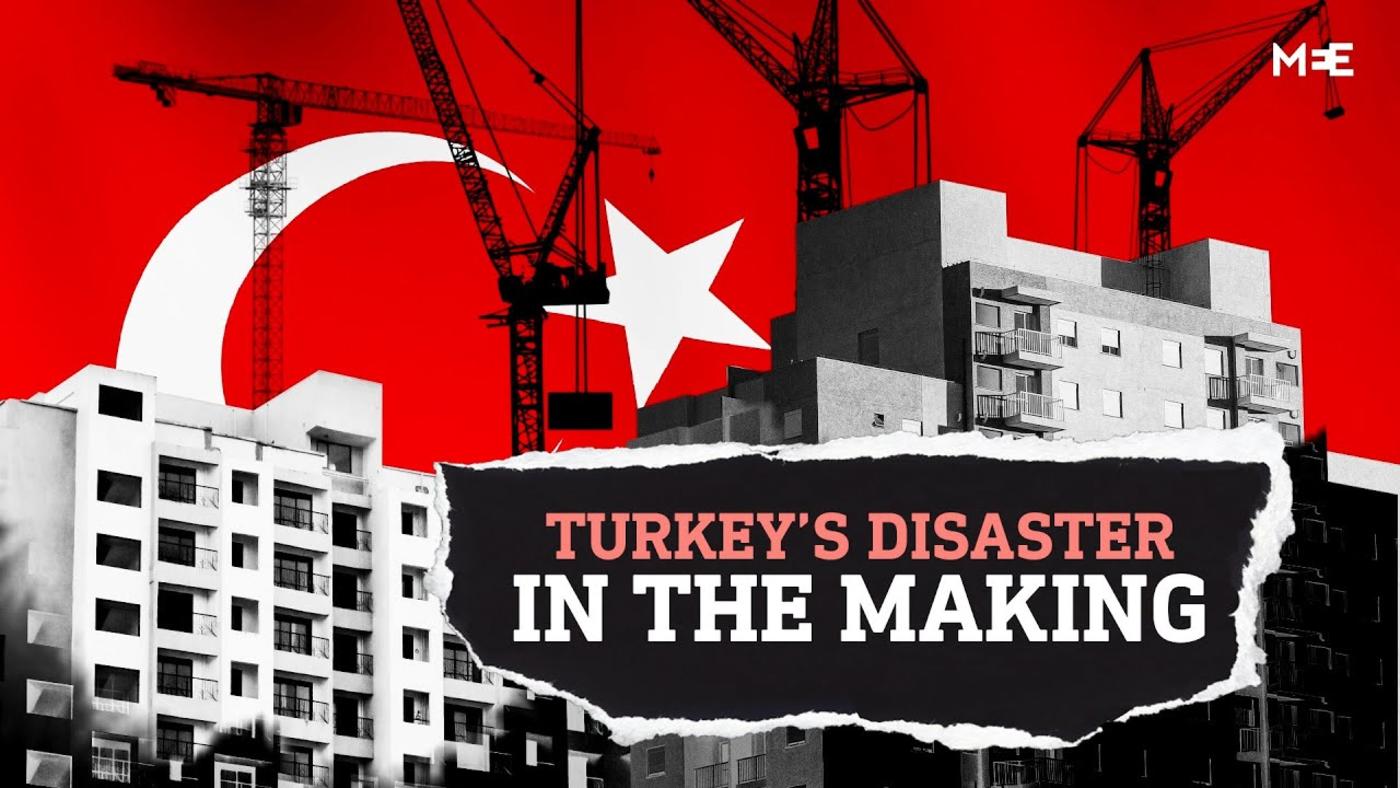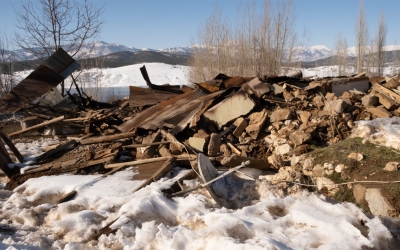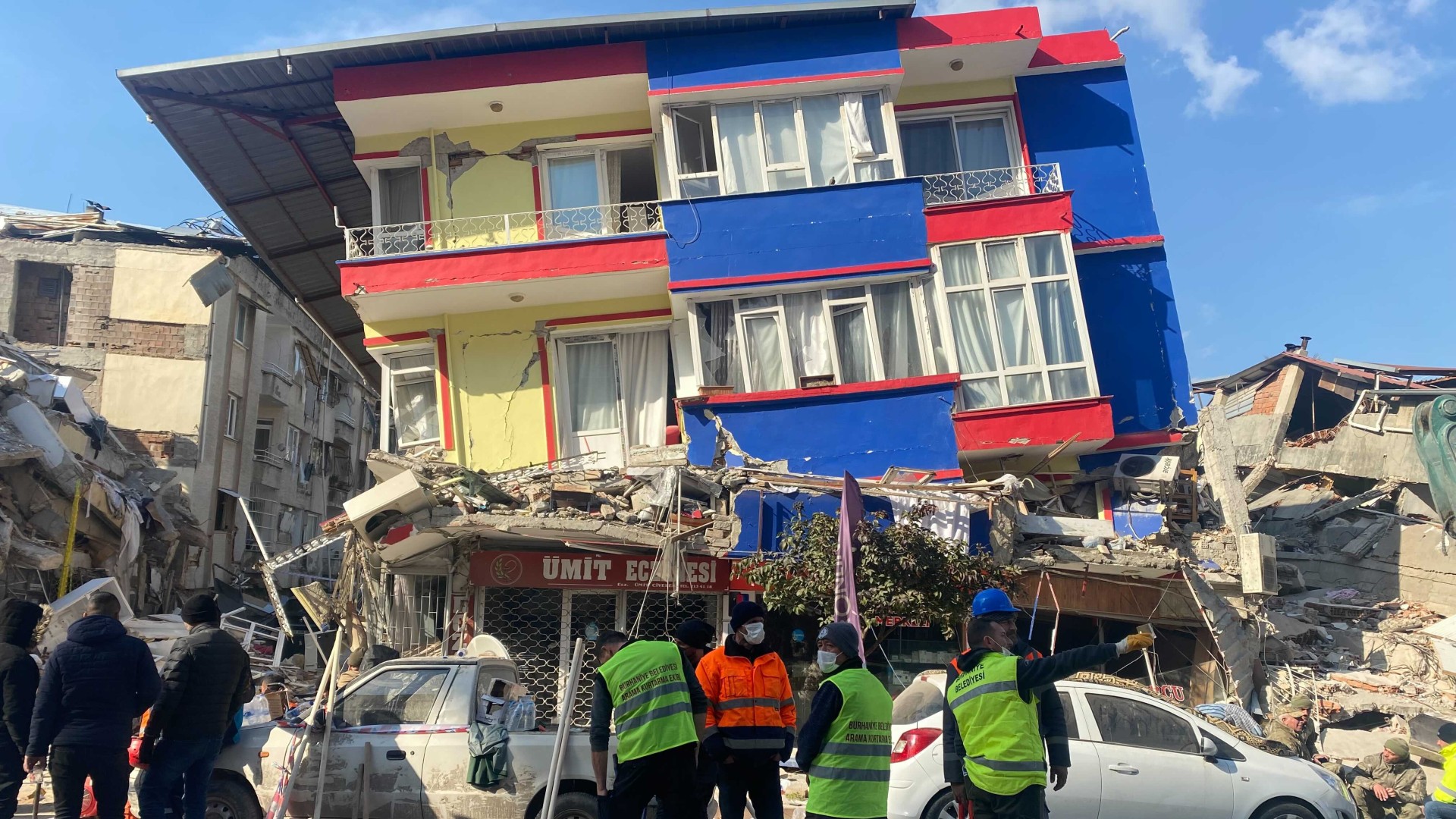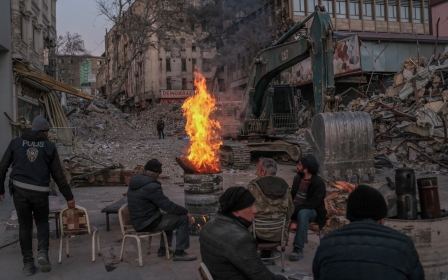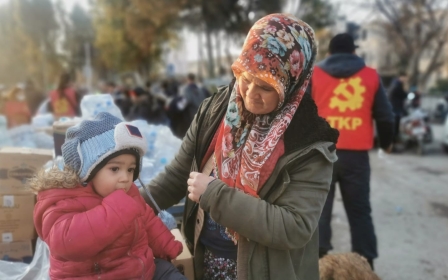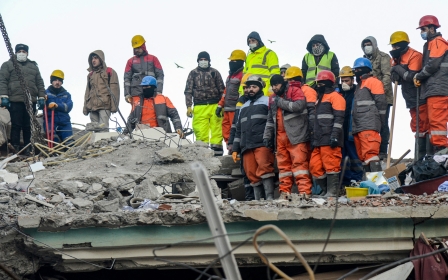The soaring rise and devastating fall of Turkey's building boom
Poor construction practices and government failures were responsible for many of the buildings collapsing in southern Turkey, following the devastating 6 February earthquakes, local residents and engineering experts have told Middle East Eye.
For decades, Turkey had embarked on a building spree that remade its urban skylines and public infrastructure, often making life easier for average Turks.
Successive Turkish governments earmarked public land for housing developments and spent billions of dollars on major infrastructure projects, including the newly built Istanbul Airport, the Eurasia Tunnel, and the Third Bosphorus Bridge.
But on 6 February, two massive earthquakes hit southern Turkey and neighbouring Syria, killing more than 47,000 people and sparking questions as to how such widespread destruction was possible despite Turkey having some of the world's best building codes.
Local residents and engineers said that although the region was prone to large earthquakes, many of the buildings that fell were built either before building codes governing disaster resilience came into effect, or those that were built after often didn't follow regulations.
"Is human life worthless?" Yusuf Turan, who lost eight members of his family when their buildings collapsed in Gaziantep's Nurdagi district, told MEE.
"Sure, an earthquake might happen. But buildings shouldn't collapse. There is no audit, no inspection."
Turkish officials have said that arrest warrants for more than 100 people have been issued for failing to follow building codes. So far, those arrested include building contractors.
Earthquake-prone
While individual earthquake activity is difficult to predict, it was never out of the realm of possibility that a large earthquake could be on the horizon in the region.
In 1999, more than 17,000 people were killed when an earthquake struck near Istanbul. In the aftermath, authorities promised stricter building regulations and introduced an "earthquake tax" aimed at improving preparedness in a country that sits on two major geological faultlines.
Public anger and economic problems, partly caused by that quake, helped catapult President Recep Tayyip Erdogan's AK Party into power in 2002, which had promised a clean start free from the endemic corruption of the past.
Erdogan's AK Party focused its efforts on underdeveloped areas of the country, some of which included the southern Kurdish cities of Gaziantep, Kahramananmaras, Diyarbakir, and Hatay.
'Turkey has a modern building code, there's no need to change that. It's about the process'
- Kit Miyamoto, structural engineer
"The infrastructure projects were extremely influential because we are not talking just about roads, but hospitals, etc," Atilla Yesilada, a Turkish political and financial analyst, told MEE.
"Of course, if you can travel from Istanbul to Izmir in three hours instead of eight hours, that is a social benefit, so not only the reputational benefits, but it actually made the lives of voters better, and the poor benefit more than the rich, there's no doubt about that."
Between 2011 and 2018, the country's construction industry made up 7.1 to 8.5 percent of the country's annual GDP.
While the construction boom allowed many to escape poverty, local and international experts repeatedly raised concerns over whether corners were being cut.
The Turkish government had attempted to retrofit the nation's faulty construction to bring it in line with earthquake codes. However, due to a lack of resources and public appetite to focus on private buildings, it instead set its sight on working on public infrastructure, such as schools, hospitals, and government buildings.
A World Bank report in 2021 estimated that retrofitting the housing stock in Turkish cities built before 2000 would cost half a trillion dollars. Only four percent of the 6.7 million residential buildings had been updated.
Earthquake codes
Turkey has had a building code since the 1940s and updated its existing building code in 2018. But also that year, it unveiled a sweeping programme to grant amnesty to companies and individuals responsible for violations.
As part of the programme, the government acknowledged that more than half of all buildings in Turkey were not in compliance with current standards.
"Turkey has a modern building code, there's no need to change that. And the education system is fantastic. Some of the best seismic engineers in the world are Turkish. So it's not about that. It's about the process," Kit Miyamoto, a structural engineer who has toured the aftermath of some of the world's worst earthquakes over the past 20 years, told MEE.
Judith Hubbard, an earthquake scientist and geologist, added that despite people residing in Turkey for millennia, it was "very hard to retrofit old buildings to make them safe for earthquakes".
"Much of the new construction is not ready for earthquakes ... in part because people have flouted building codes. They haven't used proper techniques, and partly because the government has allowed people to build in ways that don't adapt to modern building codes."
For experts such as Ufuk Bayir, the general secretary of the Union of Chambers of Turkish Engineers and Architects in Adiyaman, the decision to leave building inspections in the hands of the private sector is what really proved fatal.
"The reason the earthquake was so devastating in Adiyaman is despite warnings for one and a half years, the tests for earthquakes were not made," said Bayir.
"Our union has been warning, preparing reports and making presentations. However, we don't know to what extent the government takes them into consideration."
With the disaster coming three months before scheduled elections, analysts expect the president to face one of his toughest tests during his two decades in power.
The pace of the country's emergency response has led to mounting criticism of the president. But he, and many in his party, have maintained that no government could have been ready for a disaster of this magnitude.
"It's sad to see 100 contractors arrested, which is what always happens after a disaster," said Miyamoto.
"You need someone to blame. You hope it’s that simple, but it's not. The whole system needs to be changed."
Middle East Eye delivers independent and unrivalled coverage and analysis of the Middle East, North Africa and beyond. To learn more about republishing this content and the associated fees, please fill out this form. More about MEE can be found here.


